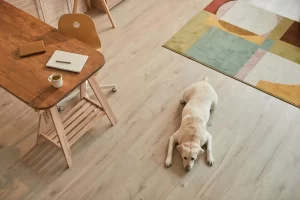Caring for Aging Parents: Home Modifications for Comfort and Safety

Caregiving - Home Safety
An increasing number of adults find themselves acting as caregiving roles for aging parents. Whether this shift starts slowly or unexpectedly, reversing roles is challenging and must be planned for in advance.
One of the first things you should do when caring for an aging parent is modifying their home to reduce fall hazards, including cords and other objects which could trip them up or cause them to trip and injure themselves.
1. Install a Wheelchair
Giving elderly parents a safe home is key to helping them remain independent. Experts advise assessing their ability to navigate safely within their own residence early, then making any needed modifications as soon as possible.
Widening doors is essential for those using wheelchairs. Narrow doorways make navigation difficult and may lead to accidental banging of hands on edges of doors. Installing expandable hinges or offset hinges to existing doors is another affordable solution available to wheelchair users.
2. Install a Shower
Many elderly parents wish to remain living independently for as long as possible, which means they may require caregiving support either from family or through a home health agency.
Assisting an elder, disabled adult, or injured adult by making simple adjustments to their bathroom can create one of the safest rooms in their entire house. Showers and tubs are common places for falls which may become life-threatening situations.
Simple modifications include clearing cords and rugs from walkways, adding brighter lighting, installing grab bars in bathrooms or along stairs, or using waterproof chairs that fit directly into shower or tub enclosures for increased safety.
3. Install a Bed
An appropriate home bed can make it easier for an elderly parent to sit up in bed and get out. The mattress must be sturdy and not too low to the ground.
Keep the bedroom free of clutter, such as clothes or loose items on the floor that could tripping up your aging parents as they move through it. Consider installing anti-skid flooring instead of smooth tiles to reduce slips and falls.
If your elderly parents are having difficulty sleeping, installing safety rails at the edges of their bed may provide support as they attempt to roll over or exit during the night.
4. Install a Walk-In Tub
Falls are one of the leading causes of injury for seniors. Many falls occur in bathrooms due to hard, slippery surfaces, high entry thresholds and hard-to-access bathing aids.
Elderly home modifications can help reduce the risk of accidents and injuries by installing a walk-in tub with slip-resistant flooring, grab bars, and thermostatic control valves to prevent hot water scalding. Some Medicare Advantage plans offer supplemental health and non-health care benefits that could cover such modifications.
But for many caregivers, the cost of installing a walk-in tub is out of their price range. If this is something that worries you, consult with your Area Agency on Aging or an online benefits checkup service to locate programs for elderly that may provide some financial relief.
5. Install Grab Bars
Reducing fall risks for seniors looking to remain at home is crucial, even with small adjustments that make the home safer and more comfortable for your loved one.
Bathrooms are one of the most likely places for people to slip and fall, so installing grab bars in both bathtub and shower may reduce risks and keep your loved ones safer.
Installing grab bars near the toilet and hallway can further enhance safety. These bars are specifically designed to support adult weight, making them far safer than towels or soap dishes that could dislodge from walls and cause falls.
6. Install a Bedside Table
Most seniors prefer to age in place and remain living in their own homes, with family caregivers providing care, while remaining independent while keeping social and cultural connections alive. This option offers them flexibility and independence all at the same time.
Removing potential trip hazards such as extra pillows or throw rugs from the bedroom will make it safer for seniors to navigate around at night. Install nonslip floors that provide better traction.
Your elderly parent needs an easily accessible bedside table in order to keep medications close by and ensure a seamless life experience.
7. Install a Phone
Caring for an elderly loved one takes more than just time and energy; it can have serious ramifications on both their happiness and health.
As part of your assessment of your parent’s lifestyle and home environment, take note of any small changes to their behavior or appearance that could indicate there might be an issue.
If you detect a decline, hiring in-home caregivers for several hours each week could provide invaluable assistance for elderly parents. They can run errands, prepare meals and assist with taking medications as well as arrange transportation for medical appointments or special events.







